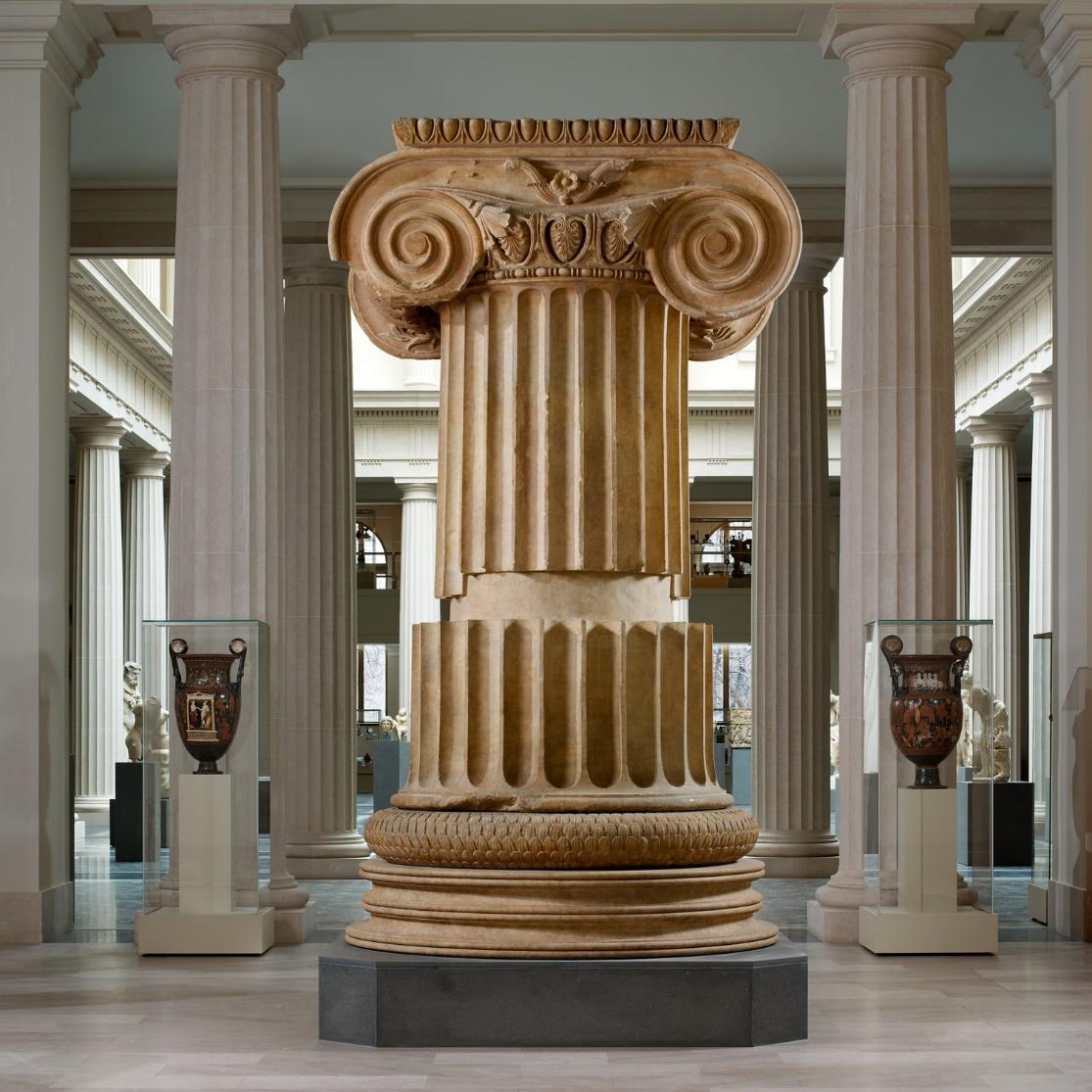Introduction
Without a doubt, Ancient Greece had a great influence on architecture in different parts of the world. Its calm and majestic beauty, harmony, and clarity continue to impress people today. The main distinguishing factor of Greek building art was the temple. Greeks liked building temples devoted to various gods. The oldest ruins of temples belong to the era of archaism when instead of wood as a building material, yellowish limestone and white marble began to be used. In this essay, I will discuss a marble column from the Temple of Artemis at Sardis.

Origin and Historical Context
This image illustrates a reconstructed column, which initially was five times bigger in the temple of the Greek goddess of hunting and childbirth – Artemis, located on the territory of modern Western Turkey. At the beginning of the twentieth century, this column was found during excavations in Sardis (“Marble column from the Temple of Artemis at Sardi’s,” 2017). In 1926 it was given as a gift to the Metropolitan Museum of Art.
Sardis, the capital of Lydia, was a strategic city that connected Anatolia and the Aegean coast. As reported by Yegül (n.d.), “the Temple of Artemis at Sardi’s is a creative experiment in Greco-Roman architecture. Above all, it reflects the Empire’s successful attempt at the amalgamation of its cherished dual cultural and artistic heritage, combining Greek models and inspiration with new ideas in shaping structure and space” (para. 20). According to Violatti (2014), the last Lydian king paid for the construction of the temple of Artemis to Greek craftsmen. Later this temple was recognized as one of the Seven Wonders of the Ancient World. The temple is also the fourth largest Ionic temple in the ancient world. The remains of the temple preserved well- two columns are still intact.
Analysis
Greek architecture favored and often utilized white marble. This column is also made from marble in the Hellenistic period when Greek culture and elements of design were interwoven into the cultural traditions of many other states. As reported by the Met Museum, this column is not very tall, so it does not belong to the outer colonnade (“Marble column from the Temple of Artemis at Sardi’s,” 2017). The ancient Greeks paid the primary attention to the beauty and harmony of the external appearance of the temple. For instance, this column is decorated with volutes on the top of the column, and beautiful carvings in between. This column is also typical of the Ionic order of architecture. Supported by the base, Ionic columns have more vertical flutes, narrow abacus, and carved frieze.
Influence on Contemporary Architecture
The architecture of Greece had an immense impact on all world architectural trends, including the Renaissance and the Neoclassical style. Many of the architectural masterpieces of the world emerged under the influence of Greek architecture and with the use of some of the elements of Doric, Ionic, and Corinthian styles. In fact, the imprint of Greek architecture can be seen in modern public buildings such as major libraries, and churches. For instance, the White House in Washington DC also has majestic marble columns.
Greeks mostly built temples using beautiful materials, like marble and limestone, and decorated columns with nice carvings and volutes. Many of these buildings became pieces of global cultural heritage. Thus, Greek architecture has impacted the aesthetics of architecture up to modern days.
References
Marble column from the Temple of Artemis at Sardis (2017). Web.
Marble column from the Temple of Artemis at Sardis [Image]. (2017). Web.
Violatti, C. (2014). Sardis. Web.
Yegül, F. (n.d.). The temple of Artemis at Sardis. Web.